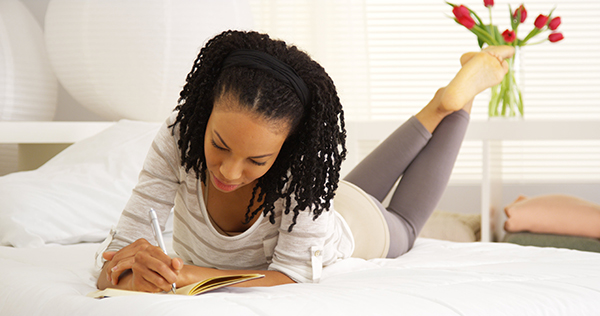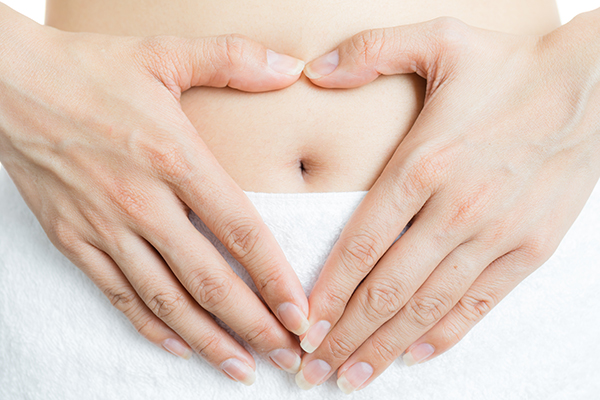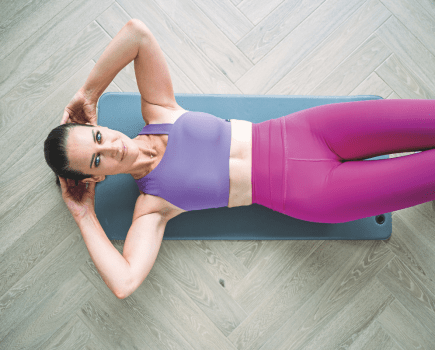Staying in tune with an innate knowledge of your own body can help you feel lighter, fitter and sharper. Read on to start increasing your level of body wisdom
There are many different types of intelligence, but according Dr Rachel Carlton Abrams, author of the new book Bodywise: Discovering Your Body’s Intelligence for Lifelong Health and Healing (Bluebird, £12.99), we need to develop our body intelligence to be truly healthy. ‘Being bodywise is the ability to tap in to what’s going on inside you and learn what your body truly needs,’ says Dr Abrams. ‘It’s helpful to know how your body communicates when something is amiss, how to give your body what it needs, as well as knowing some basic medical facts.’ So, how in tune are you with your body?
Quiz: How in tune are you?
Answer the following five questions relating to your physical and mental health as honestly as you can. Note the numbers next to your answers and, at the end, add them all up to get your score.
1. Do you know your blood pressure, cholesterol and weight?
A No, none of them – 1
B One or two of them – 2
C All three – 3
2. When eating a meal, are you aware of when you start to feel full and do you stop eating when you are?
A Never – 1
B Sometimes – 2
C Almost always – 3
3. Over the past six months, how often have you had a ‘gut feeling’ about something that turned out to be accurate?
A Not at all – 1
B A handful of times – 2
C Lots of times – 3
4. Consider an area of your body that has been in pain. How many things can you identify that helped or worsened it, such as deep breathing, movement, or painkillers?
A None – 1
B One or two – 2
C Three or more – 3
5. Think of something that would make you very happy and fulfilled. Really imagine it happening to you. Can you feel this anywhere in your body?
A No – 1
B I can feel it a little bit – 2
C I have a strong sensation – 3
Add up your scores
Your score from the quiz will be between five and 15. The closer to five, the less bodywise you’re likely to be. But you can improve your body intelligence with the advice that follows. If you scored closer to 15, you’re already tuned into your body but these tips will further heighten your intelligence!
Becoming More Bodywise
Follow our common sense tips to help you develop your ability to know what your body needs.
Know your numbers
While listening to your body is a fundamental part of being aware, some important information can’t be sensed, such as blood pressure or high cholesterol. ‘It’s therefore important to have accurate measured data in these areas so you can then make any changes needed,’ says Dr Abrams. At the very least you should know your weight, blood pressure, cholesterol and blood glucose.
Question your medication
‘Lots of people take medicine for years that doesn’t work or that they no longer need,’ she says. Once a year, ask a trusted GP whether you still need the medication you’re taking. If you’ve made positive lifestyle changes, you might not need it anymore. Check your medications are still giving the right result. Some drugs lose efficacy over time.
Acknowledge your emotions
We all have a tendency to try and ignore things that make us feel bad, but repressed emotions are linked to health concerns, including heart problems and weight gain. ‘Simply acknowledge the feeling by placing your hand over your heart when you’re sad or upset. Take a deep breath and be present in what you’re feeling,’ says Dr Abrams. Try building your intuition. ‘Your body can be a wonderful guide in helping you make the right decisions,’ she says. ‘The following exercise can help you work out what it’s telling you.’
Sit comfortably, eyes closed and take three deep breaths. Think of a statement that’s untrue about yourself, for example, ‘I hate chocolate’. Repeat it over and over again and feel any changes in your body. You might develop a tightness in your chest or
a coldness in your feet. That’s your body saying no to the question – and it will create that sensation whenever you’re making a choice that’s not right for you.
Now, repeat a true statement, such as, ‘I love chocolate’ over and over. You should feel a different sensation – it might be a tingling in your belly or warmth in your chest. That’s your body reacting to a truth; something that’s right for you. Again, it should do this during every right decision.
Find the real reason for eating
Being more bodywise can help you maintain a healthy weight, after all, a significant cause of weight gain is eating when you’re not hungry. ‘For the next three days, when you feel the need to eat ask yourself whether you’re really hungry or actually bored, anxious, sad or angry, or just eating from habit,’ says Dr Abrams. ‘If you’re eating for any reason other than hunger, find a better solution.’ If you’re bored, try stretching or going for a walk to see if that stops the need to snack. Or if you’re feeling emotional, bulletpoint journals are a good way to get things off your chest.
Learn to do a body scan
Discerning what your body is trying to tell you is key in being bodywise, but you’ll need to practise. ‘At least once a week, close your eyes and take stock,’ says Dr Abrams. ‘Pay attention to every part of your body from your toes up, and ask if there are any issues you’ve been avoiding.’ If you notice something, think about how to fix it. This could be something physical such as an ache in your foot (perhaps you need sole support in your new shoes), or something emotional, such as a feeling of apathy (time to look for a new challenge). ‘I start my day the same way every day,’ says Dr Abrams. ‘I lie in bed, take a breath and do a body scan to see if anything needs attention. I then do a brief gratitude exercise saying ‘thank you’ for the day that’s coming and asking that I use it well. Then I think how I might do that. It takes just two minutes but it really makes a big difference.’









